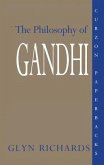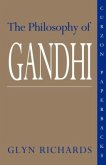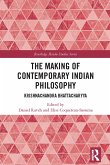"The Soul of the Far East" by Percival Lowell is a captivating exploration of Eastern philosophy, culture, and civilization written by an American astronomer, mathematician, and author. Published in 1888, this book represents Lowell's reflections and observations during his extensive travels throughout Japan, Korea, and China. At its core, "The Soul of the Far East" seeks to illuminate the essence of Eastern thought and spirituality, contrasting it with the Western worldview prevalent in Lowell's time. Drawing on his experiences and encounters with Eastern thinkers, scholars, and ordinary people, Lowell delves into various aspects of Eastern philosophy, religion, and social customs. One of the central themes of the book is the concept of harmony, which Lowell identifies as a fundamental principle underlying Eastern thought and culture. He explores how this notion of harmony manifests in different aspects of life, from the relationship between individuals and nature to the dynamics of society and governance. Furthermore, Lowell examines the influence of Confucianism, Taoism, and Buddhism on Eastern civilization, tracing their historical development and their impact on the psyche of the region. He delves into the nuances of these philosophical traditions, highlighting their divergent perspectives on ethics, metaphysics, and the nature of reality. Moreover, Lowell offers insightful reflections on the aesthetic sensibilities of the Far East, including its traditional arts such as calligraphy, painting, and architecture. He explores how these artistic expressions embody the spiritual and philosophical ideals of the East, serving as vehicles for contemplation and self-transcendence. Throughout the book, Lowell's prose is characterized by its vivid descriptions, intellectual curiosity, and deep respect for Eastern culture. While acknowledging the differences between East and West, he ultimately emphasizes their shared humanity and the potential for cross-cultural understanding and appreciation. "The Soul of the Far East" remains a valuable resource for anyone interested in exploring the rich tapestry of Eastern thought and culture. Lowell's insights continue to resonate with readers, offering a glimpse into the timeless wisdom of the Far East and its relevance to the modern world.








